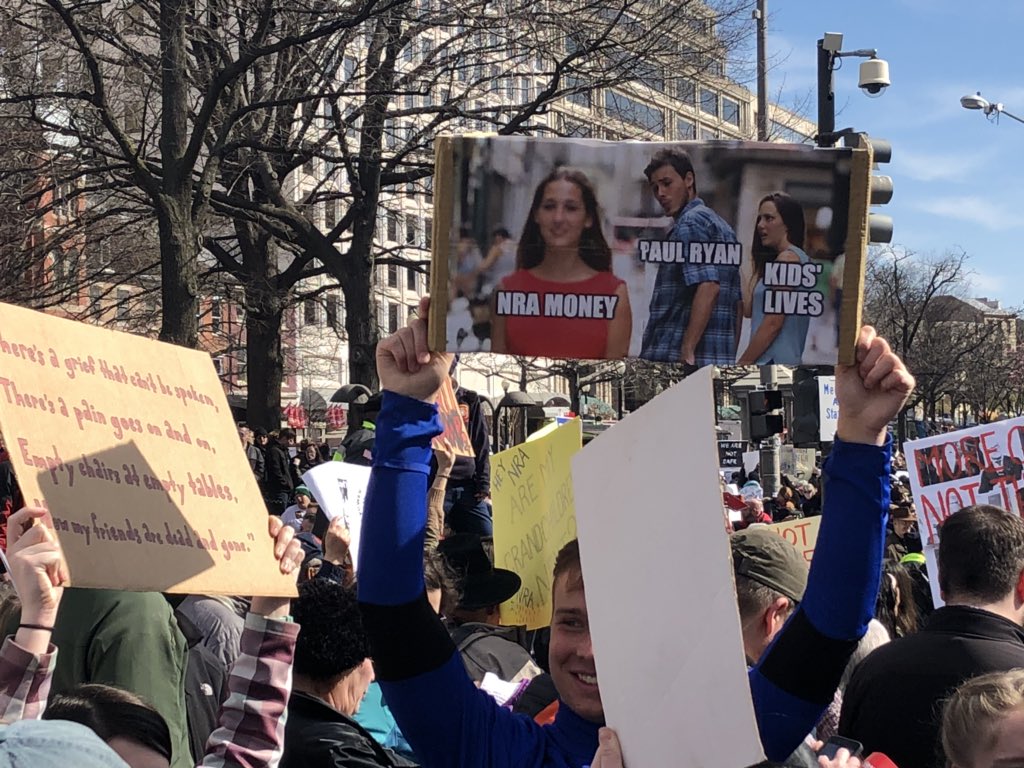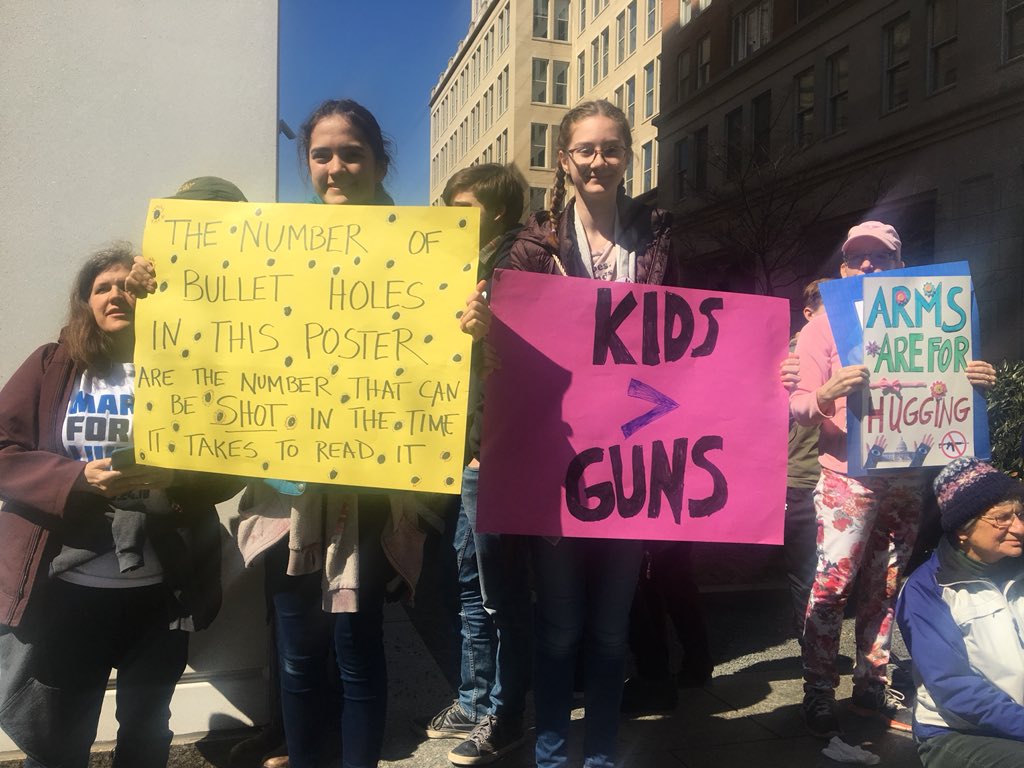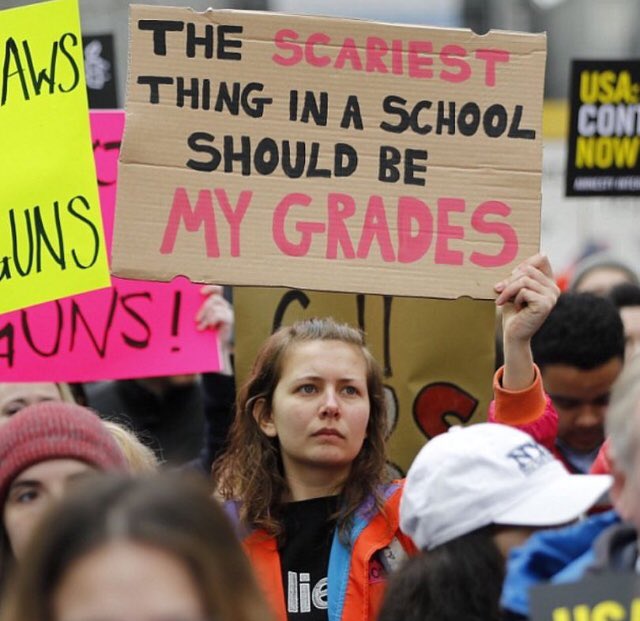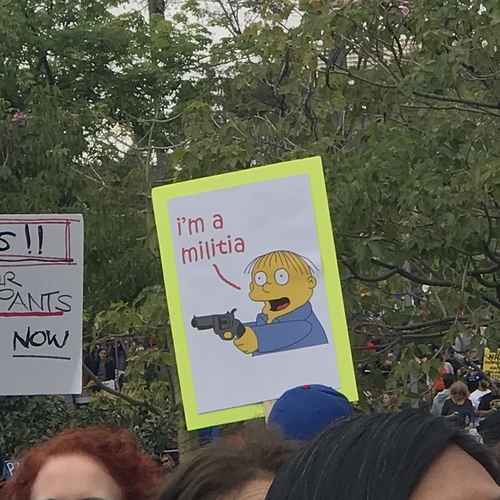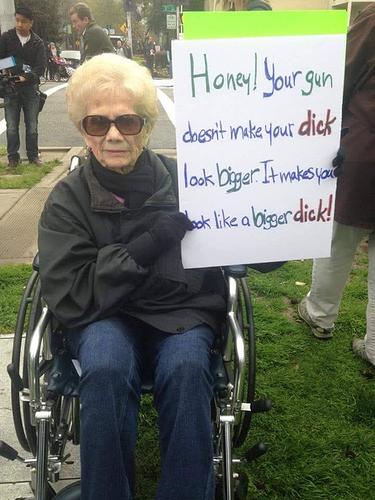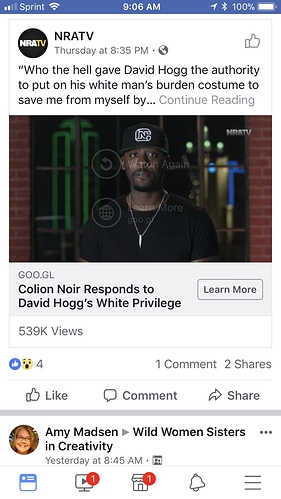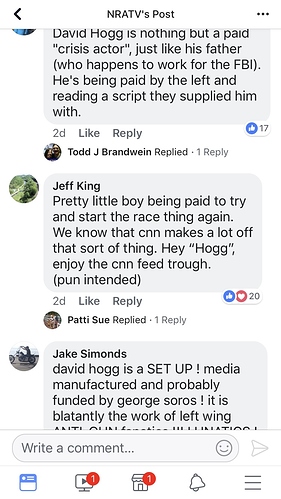So apparently one of the proposals is to give police access to mental health records. Obviously, this is America, so many of us don’t have access to mental health care, but those who do have access shouldn’t lose basic patient privacy. It’s going to make it that much harder for abuse survivors to seek help. It might not help paranoid people seek help either.
“Something must be done!” true.
“This is something!” technically true, and it’s something that might pass.
“Therefore this must be done!” facepalm
Unfortunately, SESTA doesn’t give me any confidence that politicians will ask if this is something that will help and won’t hurt…
It’s a total red herring anyway; mentally ill people are not as a whole the problem. Plenty of mentally ill women do not go gunning down children.
A Facebook friend shared this NRA video. The comments are full of conspiracy theories about David Hogg. Boy, they sure are scared of these teenagers.
You know the NRA is getting desperate when…
From the article:
Wednesday night, as part of a spending bill, Congress allocated $50 million for school security improvements and approved money to bolster the background check system used to screen potential gun buyers. It also lifted a provision that barred the Centers for Disease Control and Prevention from studying gun violence.
(Emphasis added.) Allowing research (FINALLY) is a big important step IMO.
Except that I fully expect them to walk this back as soon as they figure out what they did.
Ah, you’re probably right.

Yeah, sorry. But I seldom go wrong pointing out the vacuity and venality of politicians.
And once again, Rick Santorum lives up to his name.
“They didn’t take action say, how do I as an individual deal with this problem?"
Because the idea of individuals acting collectively in their own interest terrifies Republicans.
They’ve been claiming for years that the Dickey Amendment doesn’t really prohibit gun violence research.
Of course, it pretty much prohibits any research that attempts to come to any actual conclusion other than “guns are fine”, and was combined with a removal of any funding for such research. That’s going to need to be fixed, and from other articles I’ve seen it sounds like this doesn’t really do anything about either of those issues (though I would be happy if I’m wrong).
In childhood, I was told the tale (originally from Aesop) that Theodore Roosevelt supposedly told his kids growing up:
AN OLD man on the point of death summoned his sons around him to give them some parting advice. He ordered his servants to bring in a faggot of sticks, and said to his eldest son: “Break it.” The son strained and strained, but with all his efforts was unable to break the Bundle. The other sons also tried, but none of them was successful. “Untie the faggots,” said the father, “and each of you take a stick.” When they had done so, he called out to them: “Now, break,” and each stick was easily broken.
“UNION GIVES STRENGTH.”
Of course, Teddy would be called a RINO today.
Right, dollars were always the issue. In 1996, when Dickey passed, Congress disallowed future federal funds for studying gun violence. It also took back $2.6 billion the CDC had appropriated for that purpose. As in, took away money that was given. Out of their operating budget. So awards made, hires made on those awards, vaporised.
The omnibus clarifies that CDC scientists can do gun research. But they never couldn’t. There’s nothing in it that states that as soon as the CDC appropriates the money, again, Congress can’t seize it. As long as that threat is there, the CDC won’t act. And it’s hard t say that’s not the right move - CDC, NSF, NIH are massively efficient. I know for NSF, 97% of all dollars in go out immediately to the scientific community. In a very real way, Congress would be stealing jobs from people (particularly trainees), taking their income, healthcare, etc, if they did make one of these grabs.
https://amp.usatoday.com/amp/359395002
While grabbing the most headlines, gun violence is not limited to mass shootings. Gun fatalities include homicides, accidents, and suicides. There were 38,658 firearm deaths in the United States in 2016. Of those fatalities, 22,938 were suicides and 14,415 were homicides.
When adjusted for the population size, five of the deadliest 10 states are in the South, and six are among the 10 poorest U.S. states. In all but five states, more than half of all firearm fatalities were suicides.
Well, someone had to be the first to say it.
